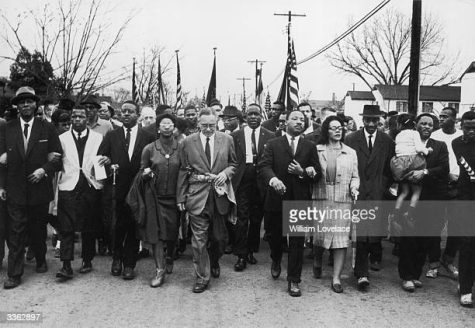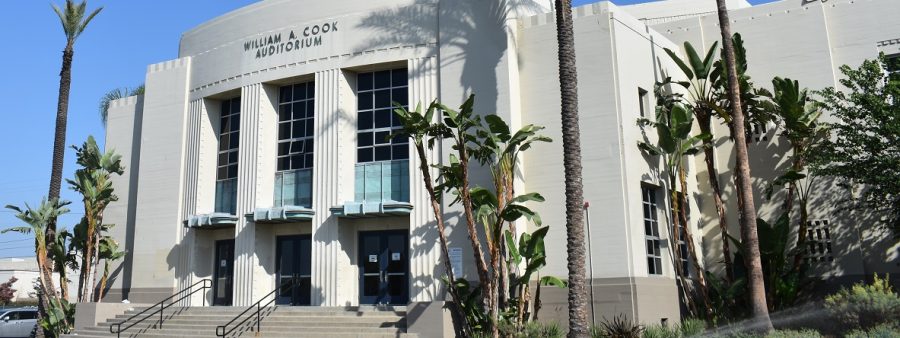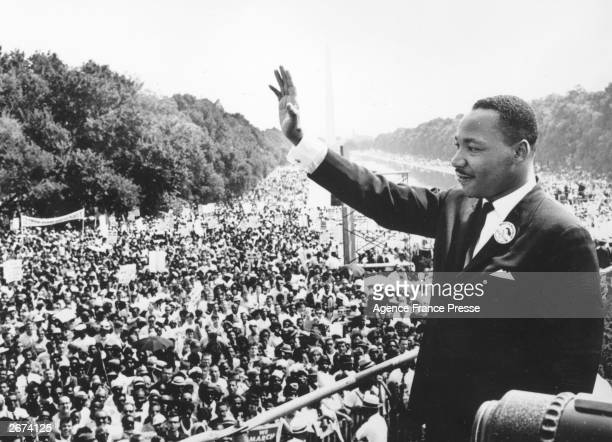Martin Luther King Jr. and His Work Towards Helping Poverty
Black American civil rights leader Martin Luther King (1929 – 1968) addresses crowds during the March On Washington at the Lincoln Memorial, Washington DC, where he gave his ‘I Have A Dream’ speech. (Photo by Central Press/Getty Images)
February 17, 2022
Martin Luther King Jr. was a social rights activist in the United States who led movements with peaceful protests to fight to end racial segregation; along the way, more injustices would surface, leading to a new focus, economic justice.
Martin Luther King Jr. said, “Life’s more persistent and urgent question is, ‘What are you doing for others?‘” On many occasions, when speaking publicly or in his writings, MLK wanted to obtain unity from other countries to fight poverty altogether. As said in his Nobel Peace Prize Lecture, “The time has come for an all-out world war against poverty. The rich nations must use their vast resources of wealth to develop the underdeveloped, school the unschooled, and feed the unfed. Ultimately a great nation is a compassionate nation.” Having said that, in 1967, Martin Luther King Jr. and the people of the Southern Christian Leadership Conference got together and initiated the Poor People’s Campaign.
The Poor People’s Campaign wanted more movement towards social change and a solution by uniting

all races to help those in need by addressing their necessities. Although the movement managed to make a few changes within the civil rights movement, there was no direct outcome from the campaign towards Martin Luther King Jr.’s solution towards helping poverty after his assassination. There was a Poor People’s march planned, but in light of King’s passing, the campaign was overshadowed, and the march became “The biggest protest on the Mall that nobody’s ever heard of.”
Mr.Wager, a current English teacher at Anaheim High School, says, “Reading and listening to Dr. King’s… I Have Been to the Mountaintop … From the flawless writing to the unimaginable conviction to nonviolence he presents in this speech, what strikes me most right now is a reminder that any societal change comes at the local level. Of course, the treatment of Black workers was (and is) a national issue, but King wasn’t in Memphis to fix a national problem. He was there to support one group of people who were being mistreated by one city’s government. King’s presence certainly brought more attention to the situation, but it’s a reminder to us that the most effective response to the giant problems we see is not to focus on every aspect of the issue but to work on them at the local level. The more people work on finding justice in their own corners of the world, the more likely it is that we see a positive change in a larger sense.”
Despite everything, while Martin Luther King Jr. did indeed devote most of his life to bringing greater equality and ending segregation, his help towards helping poverty and unionizing workers won’t go unnoticed.



